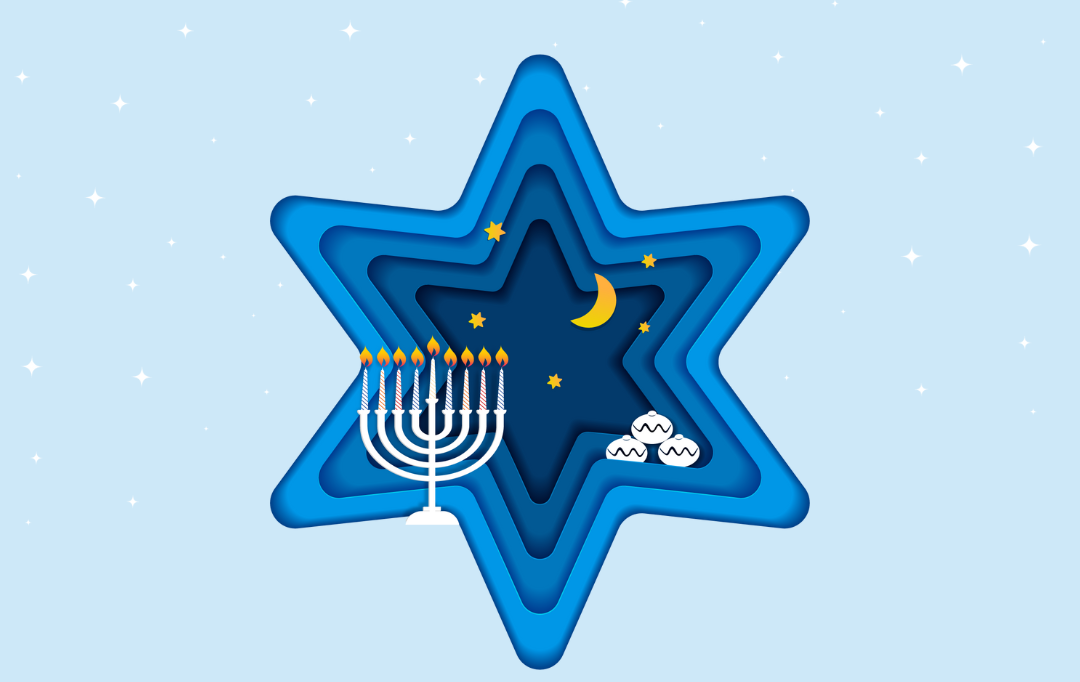We are finally bringing in the light! We’re on the other side of the winter solstice. The daylight will slowly get longer, but in the meantime, we’re lighting the Chanukah candles and filling our homes with light and warmth. Looking out the window to see a dusting of snow and twinkling holiday lights, it can be hard to remember that when I moved here just six months ago, I could sit on the beach and watch the sun set at 8:00 pm. But the seasons always come and go, and the world keeps moving through its cycles. The next, new things is always just around the corner if you have a little patience.
This week’s torah portion, Mikeitz, reminds us that nothing is static and our circumstances can always change. Joseph transforms from a prisoner into the second-in-command of all of Egypt. They won’t find out about it until next week, but Jacob and his sons go from a bereaved family to reunited. Zooming out to a more macro level, there are seven years of abundant harvest followed by seven years of famine. Fortunately, Pharoah dreams about it, Joseph interprets the dreams correctly, and they are able to store parts of their harvests to provide for their people. In this story, neither abundance nor famine lasts forever. But you can’t just sit back and celebrate the good times; you have to use them to plan ahead for the lean times. Pharoah appoints overseers to help manage the harvests and collect and store a fifth of the grain. He places Joseph in charge of the whole project. They collect so much grain that it “was like the sands of the sea” and they couldn’t even measure it. Then, when the famine strikes, the Egyptians have enough bread, but every other nation has to come to Egypt to ask for food. That’s what brings Joseph’s brothers there, leading to the Israelites settling in Egypt and ultimately the Exodus back out. Pharoah and Joseph were the only ones who were able to maximize their abundance and to use it well so that they weren’t negatively impacted by the scarcity.
On Chanukah, we add an additional candle every night, increasing the light that we kindle, making the world a brighter place. In Shaul Tchernikovsky’s poem “They Say There is a Land,” he imagines the land of Israel as an idealized, sun-drenched place. The narrator runs into Rabbi Akiva and asks him, “Where are the holy ones? Where are the Maccabees?” Akiva answers, “All of Israel is holy; you are the Maccabee!” It is now each of our responsibility to take on the role of the Maccabee, not in their zealotry or militarism, but in their commitment to being the heroes who kept their faith and their traditions alive. Like Joseph, when the sun shines and the harvest is abundant, we must all work to plant seeds for the future. And when the world is dark and cold, we must all light the candles to bring in the warmth and light. We know that the winter will end, but we have to work together to get through it, and to bring to fruition the world we wish to see on the other side.

